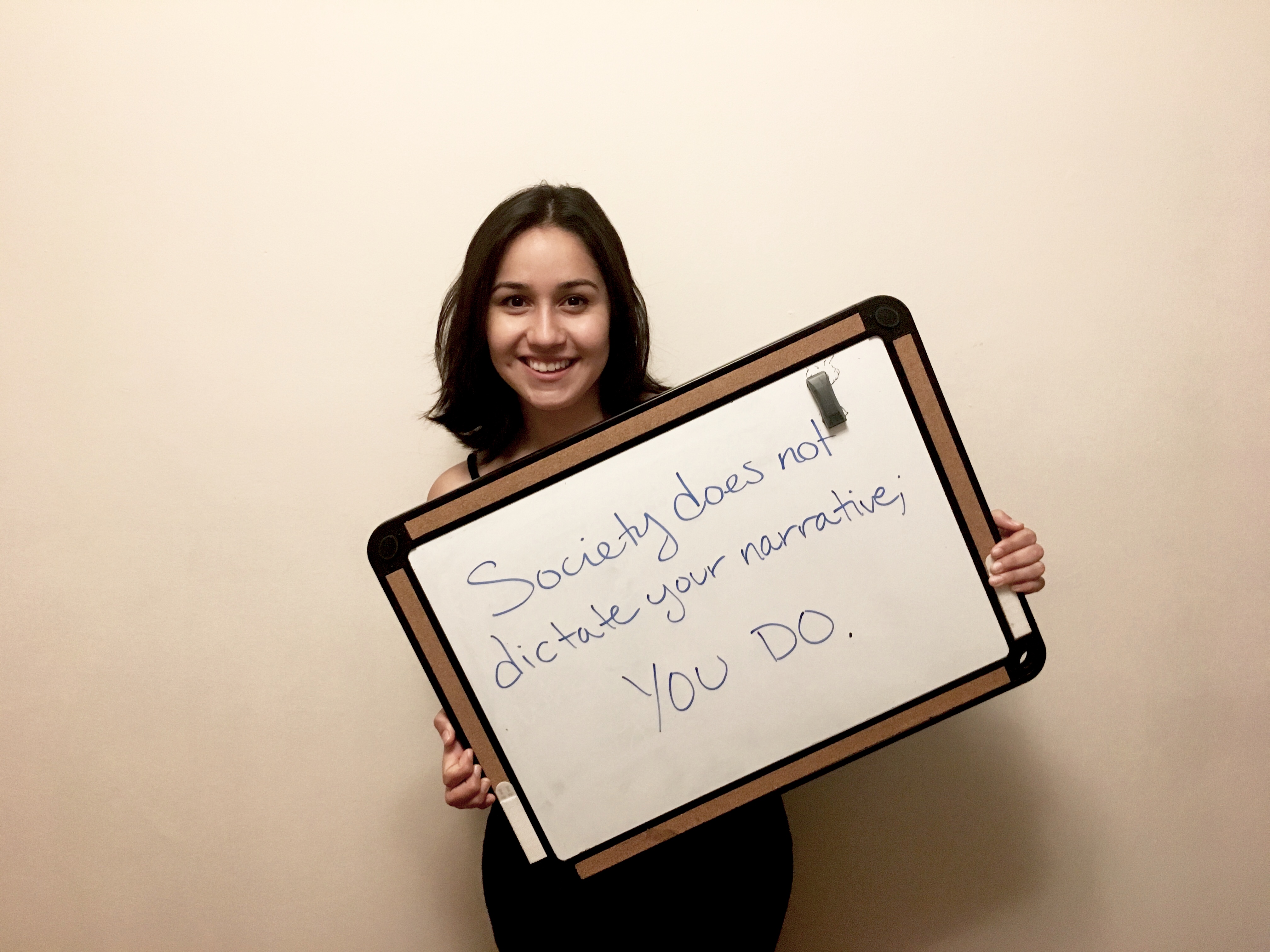Featured UCLA Feminist: Adilene Ramirez

Photo by Natalie Delpino
Adilene Ramirez, a fourth-year political science student, refuses to allow gender expectations interfere with her goals and decisions. She embraces feminism as a socio-political movement and ideology because of her desire to be able to “run her life the way she wants to and not letting social imitation that people place on women cause any conflict like any conflict with what she wants to do.”
As a Latina, she’s has had to argue with family members who embrace machismo beliefs about gender. “One of my friend’s says I’ll be single because I’m ‘too’ independent and that I solve my own problems…My dad says I’m not a woman if I don’t have kids” she explains. However, Adilene’s mother encouraged her to reject gender expectations and never told her to fit a societal mold simply because she was a girl
Despite this early rejection of gender expectations and her belief in gender equality, Adilene didn’t identify as a feminist until her senior year of high school. Adilene explained “I had a very big misconception of what feminism is…people have the misconception that feminists are man-haters or people that are ‘radical’ in a way people disapprove of.” Adilene felt she didn’t embrace feminism until a feminist classmate informed her that Adilene’s previous view of feminism was based on a faulty understanding. When talking to people who have similar misconceptions that Adilene once held, she tells them that for her, feminism is the right to a self-narrative.
This definition of feminism relates to Simone de Beauvoir’s The Second Sex, which also played a role in her feminist awakening. The book discusses the treatment of women throughout history, which Adilene found helpful in understanding how women see themselves in society and what kind of roles they believe are acceptable. “The way women have been seen, they are always an ‘of something,’ like daughter of this person, wife of this person. So you don’t see them as individuals,” she says. Therefore, for Adilene, feminism means having her own narrative in life that is not solely based on being someone’s daughter or a future wife.
Adilene is very optimistic about the future of feminism. She believes it had a positive impact on the way she understands herself; she is able to see her own limitations without believing that they are related to her gender. Adilene believes it will continue to do the same for many more people. Adilene argues, “People think feminism is a very male versus female thing, but I feel feminism itself, since we’re kind of breaking down gender roles for women, we can break those gender roles for men.” She has faith that through feminism we will be able to address toxic masculinity and society’s pressure for men to not express most emotions. She also believes that over time, people will begin to normalize women in the work force. She feels there is still a stigma of women doing “too much” outside of the household and hopes that in the future, women’s responsibilities in a family or marriage will be determined by serious discussion with their partner.
As a feminist, Adilene doesn’t want anyone’s dreams, ambitions, and self-expression to be limited by gender roles and gender expectations: “It’s a thing that’s imposed on us, and we have every right to break from it.”




